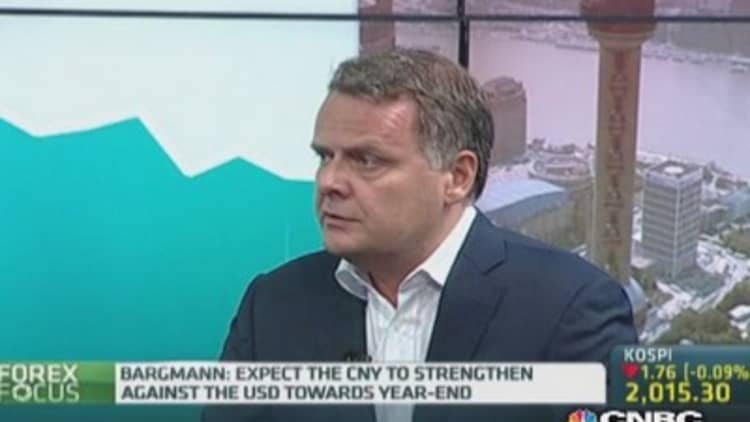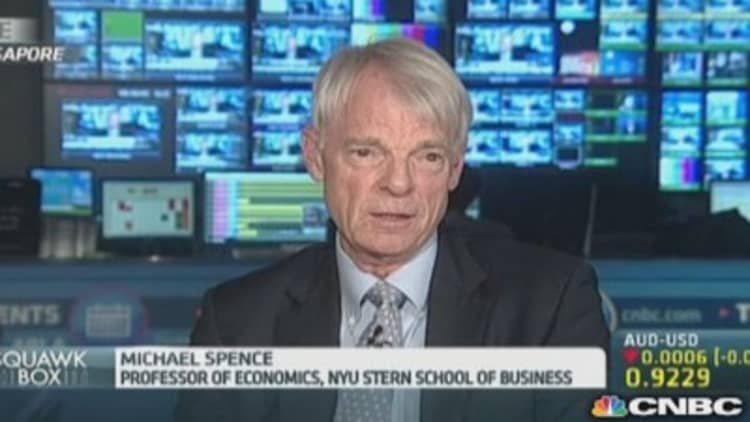
It's about time the yuan started to head back up against the dollar. After all, things don't look that bad for China's economy, some analysts say.
The Chinese currency weakened to around 6.26 per dollar this week – its lowest level in about a month. The yuan, also known as the renminbi, has been falling steadily since early February and is down just over three percent so far in 2013 making it one of the worst performing emerging market currencies.
Read MoreFrustrated dollar bulls not giving up yet
Analysts say the move makes sense in the context of recent weak data and a push by Beijing to introduce more volatility into the currency and ward off speculators just betting on yuan strength.
But they add that weakness in China's economy, the world's second biggest, may be overstated and that means a turnaround in the currency could be on the cards.
"We've had a squeeze in dollar/yuan and I think we should see a bit more of a squeeze to around 6.28, 6.30," Jesper Bargmann, head of trading markets, Singapore at Nordea, told CNBC on Thursday.
"From a technical point of view, they look like good levels to sell the dollar. I think the yuan will strengthen towards the end of the year," he said. "The press likes to paint a doom and gloom picture of China's economy but things are not that bad."
Read MoreWhat Russia-China relations mean for the dollar
China's annual economic growth slowed to an 18-month low of 7.4 percent in the first quarter of 2013, while slowing real-estate prices and concerns about the country's shadow banking sector have added to worries about the outlook.
Indeed, China's central bank Governor Zhou Xiaochuan was quoted by the media this week saying that the economy is in a "rare" and "complicated" situation.
"I think the central bank is making occasional interventions to make traders understand that this [the yuan] can go up or down. It does look like tactical maneuvering more than anything else," Michael Spence, professor of economics, at the NYU Stern School of Business, said on CNBC, with regards to whether the central bank was deliberately guiding the yuan lower in order to support the economy.

In recent weeks, there have been some encouraging signs on the data front: China's official Purchasing Managers' Index (PMI) rose to 50.4 in April from 50.3 a month earlier, edging further above the 50-barrier that divides contraction in manufacturing activity from expansion.
HSBC's May flash PMI, released last week, hit a five-month high of 49.7.
"The yuan, to me, is not moving on market forces, it's moving on policy issues. And when it comes to policy, largely in the States there are a lot of headlines that come through on China that suggest doom and gloom," said Tim Seymour, CIO at Triogem Asset Management in New York.
Read MoreChina shadow banking fears: Overstated or justified?
"I don't think China is going to cover itself in macro glory but I also don't think China is going to succumb to the credit issues it has," he added.
Analysts at Credit Agricole added: "While month-end flows are likely to lead to some upward pressure, we believe it is time to bet on a short-term rebound."
"Technical negatives in the yuan have played themselves out already, while fundamentals are turning around," they said in a note on Thursday.


